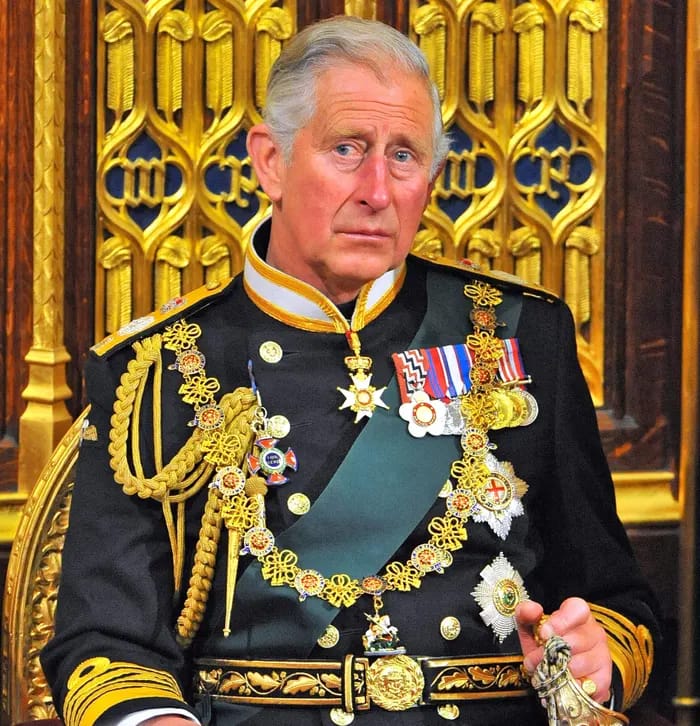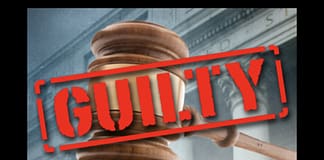
At the summit, a demand that the United Kingdom pay reparations for its role in the transatlantic slave trade has resurfaced. While the subject is not on the official agenda, Commonwealth leaders said they would hold their own discussions – with or without the approval of the British government.
A proposed section for the summit’s final communique, making reference to reparations, had been vetoed by the UK. Instead, the communique, which was released on Saturday, included only a reference to possible future discussions about “reparatory justice with regard to the trans-Atlantic trade in enslaved Africans”.
So what is the summit, and could this pressure the UK to pay reparations?

What is the Commonwealth summit and who attended?
The Commonwealth Heads of Government Meeting (CHOGM) is held every two years, with each of the 56 Commonwealth member countries taking turns to host the summit.
This year’s summit began on Monday in Samoa’s capital, Apia, and ran until Saturday.
The last CHOGM, held in 2022, took place in East Africa’s Rwanda.
Representatives of 56 countries, most of which have roots in the British Empire, attended the summit.
This year, Climate change is taking centre stage in discussions. Countries are working on the Commonwealth Ocean Declaration to protect bodies of water. Countries are also discussing how to hit climate finance targets.

Advertisement
The summit also held discussions by Commonwealth women to push for greater gender equity.
Some leaders of Commonwealth countries, including India’s Prime Minister Narendra Modi and South Africa’s President Cyril Ramaphosa, opted to attend the BRICS summit in Russia this year instead of the Commonwealth summit.
Union Minister of Parliamentary Affairs of India, Kiren Rijiju, attended the Commonwealth summit in place of Modi.
Following every summit, the member states put forth a final joint communique.
Were reparations for slavery on the agenda?
No, they were not, but many people think they should have been.
Advertisement
For more than 300 years, from the 15th to 19th centuries, at least 12.5 million Africans were kidnapped and forced onto American and European ships, trafficked across the Atlantic and sold into slavery in the Americas.
The UK’s involvement in the slave trade began in 1562, and by the 1730s, the UK was the biggest slave trading nation in the world, according to the UK parliament’s website.
The website adds that British ships transported more than three million Africans, mainly to the UK’s North American and Caribbean colonies.
UK leaders have so far resisted engaging in discussions about paying reparations to the countries that received trafficked slaves – and where their descendants now live.
The British government maintains that reparations for slavery will not be paid. In April 2023, former Conservative PM Rishi Sunak refused to apologise for the UK’s role in the slave trade or to pay reparations.
Advertisement
At this year’s summit, the British prime minister, Keir Starmer, confirmed that reparations would not be on the agenda.
He told reporters at the start of the summit: “Slavery is abhorrent … there’s no question about that. But I think from my point of view and taking the approach, I’ve just taken, I’d rather roll up my sleeves and work with them on the current future-facing challenges than spend a lot of time on the past.”
Starmer said he wanted, instead, to focus on present challenges, such as climate change.
Leaders who advocate for reparations, such as the St Vincent and the Grenadines prime minister, Ralph Gonsalves, argue that the legacy of the slave trade continues to plague Caribbean countries.
“There was nothing for them to start with and build on – no land, no money, no training, no education,” he told The Guardian newspaper.
Advertisement
The UK’s King Charles III also addressed the summit. He said that while “none of us can change the past”, we must learn lessons to “right inequalities that endure”. However, he did not call for reparations, instead urging leaders to find “creative ways” to address the past.
What do Commonwealth leaders say?
Commonwealth leaders said they would proceed with “plans to examine reparatory justice” for the slave trade anyway, the BBC reported on Thursday.
The BBC reported that African leaders and officials from Caricom, a bloc of 21 Caribbean countries, were also pushing for a separate section in the official communique about reparatory justice.
During the summit, Caricom proposed a 10-point reparation plan, including a formal apology, debt cancellation, technology transfer, assistance resolving public health crisis and illiteracy eradication.
Bahamian Prime Minister Philip Davis said it was time for the Commonwealth to seek “justice” for the brutal history of slavery.
Advertisement
“Let’s have a conversation about this … We all appreciate this, the horrendous impact that the transatlantic slave business had on the African diaspora, and it requires justice,” Davis told the news outlet Politico.
However, UK officials succeeded in removing this separate section from the communique. Instead, the communique made a much shorter reference to possible future discussions on reparatory justice.
It mentioned calls for “discussions on reparatory justice with regard to the transatlantic trade in enslaved Africans and chattel enslavement… agreed that the time has come for a meaningful, truthful and respectful conversation towards forging a common future based on equity”.

If the UK had to pay reparations, what would they amount to?
Even if the communique issued by the leaders at the summit had contained a directive to pay reparations, it is not legally binding. However, it would add to the mounting pressure on the UK to consider reparations.
In June 2023, the Brattle Group Report on Reparations for Transatlantic Chattel Slavery was published.
Brattle is an economic consulting group based in Boston, Massachusetts, in the United States. The group researches economic issues for organisations and governments worldwide.
Brattle compiled the report for The University of the West Indies, and former International Court of Justice jurist Patrick Robinson provided his insights into this.
The report estimated that the UK should pay $24 trillion as reparations.

Who could reparations for slavery be paid by and to?
The Brattle report says the UK owes the reparations to 14 Caribbean countries. These include Antigua and Barbuda, Bahamas, Barbados, British Virgin Islands, Cuba, Dominica, Dominican Republic, Grenada, Haiti, Jamaica, Puerto Rico, Saint Kitts and Nevis, Saint Lucia, and Trinidad and Tobago.
Other countries which played a role in the transatlantic slave trade, including Portugal, the Netherlands and France, have also either refused to discuss reparations or have decided against paying them.
Some countries have made apologies, such as the Netherlands in 2019. However, the Netherlands also ruled out paying reparations and instead established an approximately $216mn (200 million euros) fund to promote social initiatives in the Netherlands, the Dutch Caribbean and Suriname.
Advertisement
Reparations have been paid over slavery in the past – to the owners of slaves. In 1833, the British government agreed on compensation of 20 million pounds for slave owners for the “loss of their property” after passing legislation to abolish slavery in the British Empire, worth around $2.6bn (2 billion pounds) today.
Source: Al Jazeera
Advertise with the mоѕt vіѕіtеd nеwѕ ѕіtе іn Antigua!
We offer fully customizable and flexible digital marketing packages.
Contact us at [email protected]

















Because unlike us they are OVER IT. I think we as black people need to move forward as a group to improve our circumstances. Focus on building wealth and stability for our families and community, take control of our lives, encourage our men to be fathers and leaders and stop blaming the white man for everything we don’t have. Asking for reparations isn’t helping us as a group. Let us focus on our future, that doesn’t mean we must forget our past it just means that we don’t allow the legacy of slavery to dictate how we advance.
Don’t you see these white men called our Caribbean leaders like little children of a lesser god like dogs and they happily spend our tax dollar running to them for white supervision, in the first place there should be nothing called commonwealth instrument which is a creature of colonialism to elongate the same post independence, if one was to totaled the entire Caribbean ministers travel to these meetings since their so call independence it borders in the trillions, with no benifit to the populaces of these countries but to give foreign white corporations hegemony over the economy and resources of these small islands, our ethnicity as black Africans is been infantillised into perpetuity, these leaders with harvested colonial brains, that love the supervision of their former colonial masters are the doom of our future generations, because they cast us into perpetual poverty. I thought better of Mia Motley, though she may sound academic she is Centristic and not left leaning to black empowerment. Are you guys crazy not to see that these ministers of the Caribbean has acknowledge the royal family as central executive of our Caribbean islands up to this day in history, would the royal family have it’s subjects give any cheeks? So how dare they raised their heads about reparations, they enjoy been semi- slaves to this day, they worship a colonized white god given to them, everything white they celebrate.
Slavery is still alive and well under the guise of hotels – only white people are at the top of the food chain making all the big bucks and black folk are overworked and underpaid. imagine working in a position and getting paid way less than when a white person is in it!! this shit needs to stop ✋
Comments are closed.